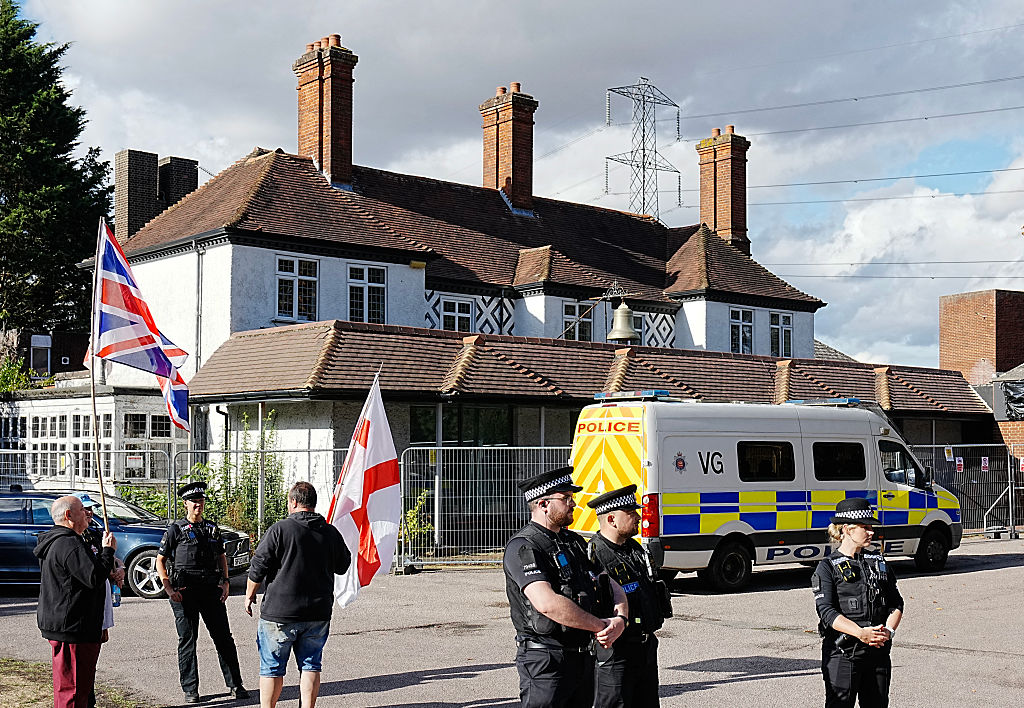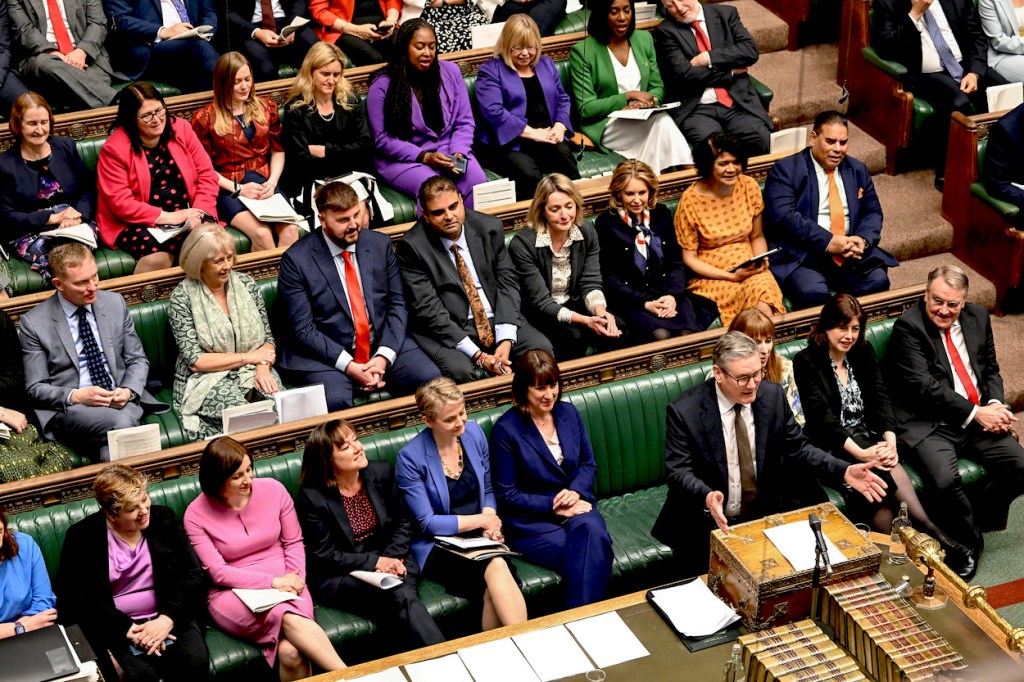The Bell Hotel in Epping has hardly been out of the news since the summer. In July, Bell resident Hadush Kebatu’s sexual assault of a 14-year-old girl sparked weeks of protests. And if Epping was forgotten for a short time after he was jailed, it swept back to the headlines when Kebatu was released in error from HMP Chelmsford, and spent days wandering about London. Over these past few months Epping District Council has been fighting a legal battle to force the Home Office to house these illegal migrants elsewhere. Its a goal shared by the majority of Epping’s councillors and voters.
Everyone knows we can’t go on admitting over 110,000 asylum seekers a year, with close to 38,000 arriving this year via small boats, in almost every case with no proof of their real identities.
The battle has been between Epping council on one side, and the Home Office, along with Somani Hotels and Clearspring Ready Homes, two large, highly profitable operators of migrant accommodation on behalf of the state.
Today Mr Justice Mould handed down his judgment. Having listened to all the evidence of fear, crime and victims created by the presence of asylum seekers at the Bell, Mould concluded that ‘the degree of planning and environmental harm resulting from the current use [of the hotel] is limited…this is decidedly not a case in which there is an abuse of planning control resulting in serious planning or environmental harm which now demands an urgent remedy.’
He also stated that the ‘continuing need for hotels as an important element of the supply of contingency accommodation to house asylum seekers in order to enable the Home Secretary to discharge her statutory responsibilities is a significant counterbalancing factor.’
Councillor Ken Williamson, speaking on behalf of Epping Council described this as ‘a devastating decision for local democracy’, insisted they ‘won the moral and ethical arguments’ but ‘were outgunned by bigger and more powerful interests.’ Williamson went on to say that they were opposed by ‘an unholy alliance of lawyers for government and big business intent on protecting huge profits and an indefensible asylum policy.’
When I speak to the ordinary mothers and fathers who are campaigning against the migrant hotel, they make it clear that they have had enough of what they describe as ‘strange’, ‘unvetted men’ wandering around an area with five schools. They speak about a climate in which school children no longer feel safe. No doubt this has been exacerbated by the horrific murders of hotel worker Rhiannon Whyte and businessman Gurvinder Johal, the killing of Wayne Broadhurst, the conviction of Amin Abedi Mofrad for the rape of a 15 year old girl, and the ongoing prosecutions of asylum seekers for sexual assault and rape.
It is no wonder that people across the country have had enough of our asylum system. Even those who claim to be pro-migration recognise the threat posed by placing hundreds of unvetted men in British towns and villages. Last week the Green party deputy leader Rachel Millward sent a letter to Mike Tapp, minister for migration and citizenship, in which she challenged his decision to house 600 migrants in her community. In that letter, Millward stated that ‘the dire management of the situation is already causing major problems [and] we simply do not have information to reassure us that the wellbeing and safety of… local communities will be properly safeguarded’.
In truth then, everyone knows we can’t go on admitting over 110,000 asylum seekers a year, with close to 38,000 arriving this year via small boats, in almost every case with no proof of their real identities.
If these very real and awful risks from asylum seekers weren’t enough, the financial cost is also very great. We are currently housing around 32,000 migrants in hotels, at a cost of around £2.1 billion a year. Meanwhile migrants moved into houses are also costing us a vast amount of money, with the National Audit Office estimating we will spend £15.3 billion on asylum accommodation over the next ten years.
As things stand, the law makes such support inevitable. Under legislation such as the Human Rights Act and the Immigration and Asylum Act the Home Office has a statutory obligation to house all destitute asylum seekers. Given most boat arrivals carry no papers nor personal possessions, they all qualify as destitute. Meanwhile our participation in the Refugee Convention burdens us with further self-destructive obligations.
These are the rules and conventions of the last century. We’ve tested them to destruction and they bring crime, suffering and fear, at great expense. It’s time for a new system, one in which asylum is only granted for a very few genuine political refugees, requiring the personal approval of the Home Secretary. If the courts won’t stop this then politicians must, and if Labour won’t then they should expect to be swept aside at the next election.







Comments